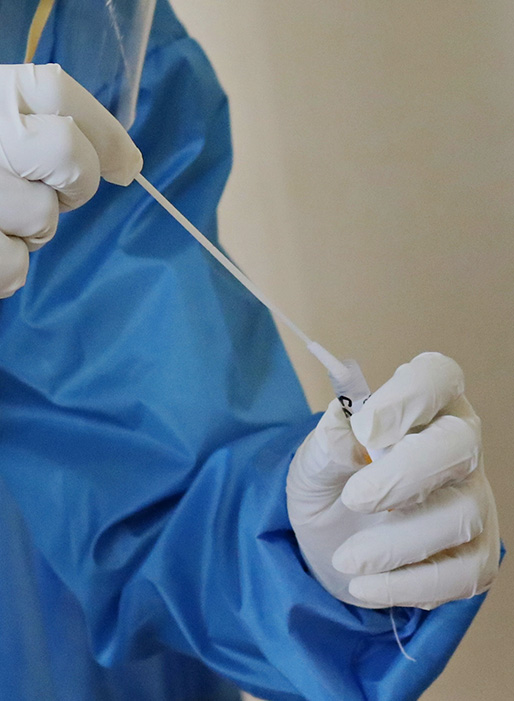
Ebola Outbreak in the Democratic Republic of Congo
11 May 2018
A new Ebola outbreak has been reported in the north-west of the Democratic Republic of Congo (DRC). At least 17 people have been killed in Equateur Province in what the DRC health ministry has described as “another epidemic of the Ebola virus, which constitutes an international public health emergency.” However, the WHO and MSF, who have been deployed to the region, have only confirmed two deaths from Ebola at this time. Local health officials reported that more than two dozen patients had shown signs of haemorrhagic fever around the village of Ikoko Impenge, near the town of Bikoro; it is unclear how many of these people have actually contracted the Ebola virus.
Key Points
- The World Health Organisation (WHO) has reported a new Ebola outbreak in the Democratic Republic of Congo.
- 17 fatalities have been attributed to the virus in the northwest of the country, with two confirmed cases.
- Officials from the WHO and Médecins Sans Frontières (MSF) have been deployed to the region.
Situational Summary
Health: A new Ebola outbreak has been reported in the north-west of the Democratic Republic of Congo (DRC). At least 17 people have been killed in Equateur Province in what the DRC health ministry has described as “another epidemic of the Ebola virus, which constitutes an international public health emergency.” However, the WHO and MSF, who have been deployed to the region, have only confirmed two deaths from Ebola at this time. Local health officials reported that more than two dozen patients had shown signs of haemorrhagic fever around the village of Ikoko Impenge, near the town of Bikoro; it is unclear how many of these people have actually contracted the Ebola virus.
Solace Global Comment
Ebola is a highly infectious virus which is spread through contact with bodily fluids. Infected individuals show symptoms such as fever, headache, muscle pain, fatigue, diarrhoea, vomiting, abdominal pain, and haemorrhaging. Symptoms can emerge two to 21 days after exposure.
The latest outbreak of Ebola is reported as the Zaire strain, and is considered to be the most dangerous. Indeed, an outbreak of this strain in Democratic Republic of Congo in 2007 had a fatality rate of 74 per cent, with 200 deaths reported. In 2014, an outbreak unrelated to the one which was ongoing in western Africa, killed 49 people out of 66 confirmed cases. Health officials were praised for limiting the impact of this outbreak. This is the country’s ninth outbreak since Ebola was first discovered in 1976, and the fifth since 2007. Indeed, in 2017 an outbreak beginning on 22 April killed eight people.
The 2014 outbreak in West Africa was the worst-ever recorded outbreak of the virus. More than 11,300 people were killed, most of them in Guinea, Sierra Leone, and Liberia; other cases were reported across the western hemisphere. Nearly 29,000 others were suspected to have been infected. The WHO called the outbreak a “public health emergency of international concern”.
In 2017, an experimental vaccination was developed but due to logistical concerns and the relatively minor nature of the outbreak, it was not deployed to the region where the outbreak was reported.
SECURITY ADVICE
HealthModerateWhile fearing a potentially significant outbreak, the WHO has yet to recommend any restrictions on trade or travel to Democratic Republic of Congo. Travellers in the DRC and in neighbouring countries are advised to ensure that they follow developments closely as health officials head to the impacted region and investigations continue. Travellers are advised to maintain excellent hygiene, avoid contact with infected individuals, disinfect impacted areas, avoid contact with wild animals (including bats and monkeys), and treat injuries immediately and thoroughly. Travellers are also advised to ensure that they have the necessary insurance to cover the potential for emergency care or repatriation.
It is unclear whether or not this outbreak will spread to the rest of the country or region. It should be noted that while the reported Ebola strain is considered the most dangerous, the impacted area is very remote, which may help to control its spread. In 2017, health officials were praised for the ability to control the outbreak.
Solace Global would advise clients to employ enhanced security measures when visiting Democratic Republic of Congo. The level of advised security will vary depending on the area of travel. For most places, it is advisable to employ the minimum of an airport meet and greet, a security-trained driver, and executive protection. For more remote areas of the country, it may also be advisable to employ a secondary convoy vehicle or armed guards. Travellers to Democratic Republic of Congo should also consider employing travel-tracking technology with an intelligence platform for the duration of their stay in country, as well as extensive journey management planning. For travel in rural areas, it would also be advisable be employ a GPS tracker.